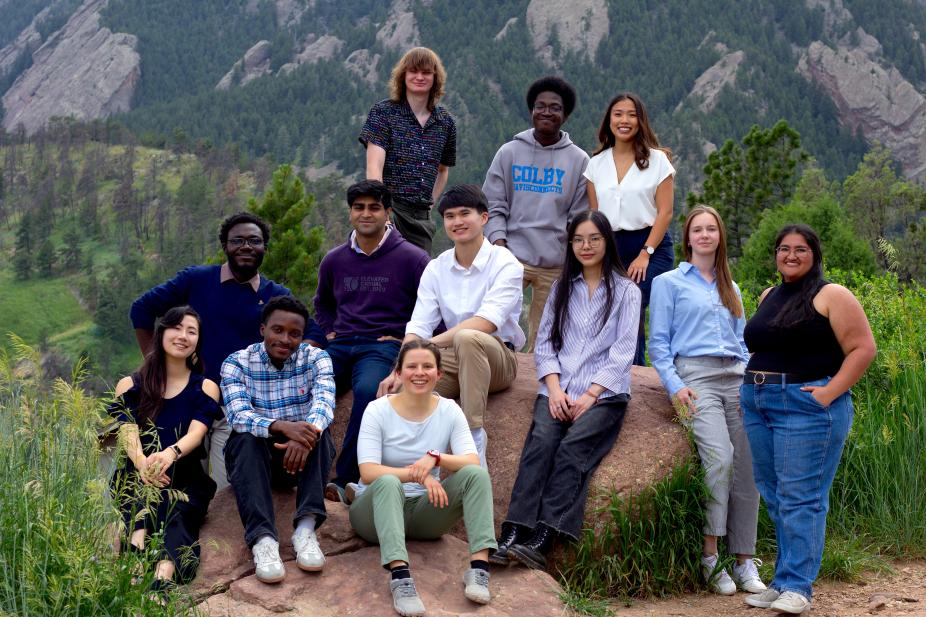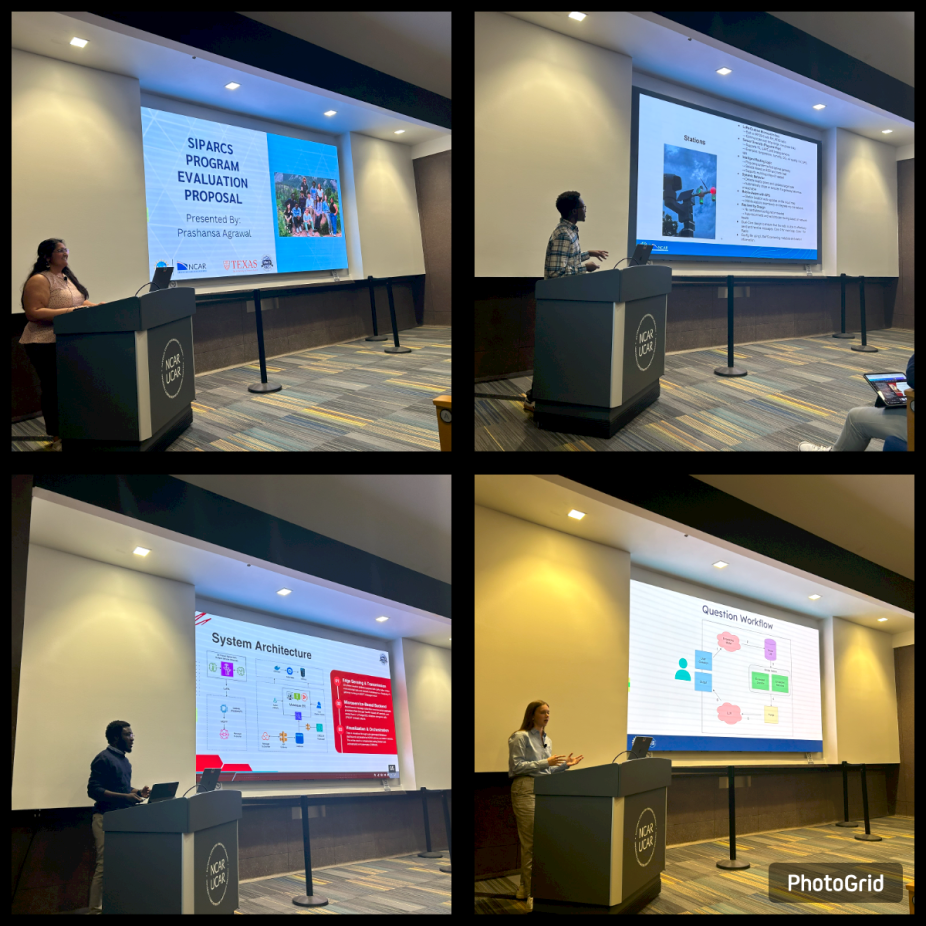2025 SIParCS presentations conclude a successful summer
by Shira Feldman

The SIParCS 2025 interns pose as a group.
The 2025 Summer Internships in Parallel Computational Science (SIParCS) program culminated in a series of engaging final presentations and a vibrant poster symposium, marking the successful conclusion of an exciting and productive summer for its talented cohort of interns.

Group photo of interns from the 2025 SIParCS program
The final presentations took place on Tuesday, July 29, at the NSF NCAR Mesa Lab in Boulder, CO. The event welcomed staff, family, friends, and other interested individuals, who attended both in-person and virtually, and allowed for questions to be submitted online. Videos of the students' oral presentations, along with their posters, will soon be available on each of their project pages (listed below).
The program, sponsored by the Computational and Information Systems Lab (CISL) at NSF NCAR, began on Monday, May 19, and concluded on Friday, August 1, 2025. Over the 11-week period, 12 interns from various institutions across the country, comprising both undergraduate and graduate students, gained invaluable technical experience under the guidance of distinguished CISL mentors. In addition to the technical work, the SIParCS program also incorporated social activities to foster a fun and supportive summer for the interns.
The presentations, listed as follows, showcased a range of innovative projects in Earth system science and high-performance computing:
-

Clockwise from top left: Prashansa Agrawal, Adebowale Adelekan, Sofia Borukhovich, and Isaac Oppong-Baah give their final presentations.
Shilin Chhabra, University of Wisconsin-Madison: "Enhancing Scientific Onboarding in CIRRUS Through Cloud-Native Infrastructure for Earth System Scientists"
-
Esther Gallmeier, Cornell University: "Scalable Vector Calculus Operators for Geoscientific Analysis on Unstructured Grids in UXarray"
-
Andrew Kwong, Cornell University: "Enhancing Scientific Reproducibility and Software Correctness in CrocoDash for Regional Ocean Modeling"
-
Angela Pak, University of Illinois Urbana-Champaign and Aidan Winney, University of Florida: "Advancing Atmospheric Chemistry Workflows in Python"
-
Christian Okyere, Colby College: "Reimagining Python Education for Geoscience: Lessons from Project Pythia's Modernization"
-
Connie Chau, Northwestern University: "Systematically Improving Data Access in the NSF NCAR Research Data Archive Through User Experience Research"
-
Minh Le, Dickinson College: "Enhancing Data Access of the Research Data Archive Through Full-Stack Development"
-
Sofia Borukhovich, Temple University: "Natural Language Discovery of NSF NCAR Scientific Data"
-
Adebowale Adelekan, Brown University: "radIOTic: An Intelligent, Fault-Tolerant, AI-Enhanced Mesonet for Atmospheric Sensing"
-
Isaac Oppong-Baah, Norfolk State University: "Microservice-Driven IoT Architecture for Atmospheric Sensornets and Real-Time Visualization"
-
Prashansa Agrawal, University of Texas at Austin: "Where Science Meets Humanities: A Program Evaluation Proposal for SIParCS"
CISL’s Virginia Do, SIParCS program coordinator, delivered opening and closing remarks.
CISL extends best wishes to the 2025 SIParCS interns as they return to their studies, now equipped with new experiences and enhanced confidence gained from their summer in computational science.